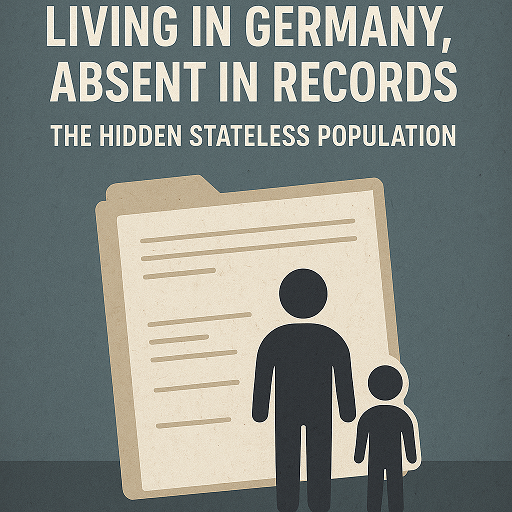In my fight to legalize the mother of my children and secure citizenship for them, I began to wonder: how many others live trapped in the same legal grey zones? The deeper I dug, the more disturbing the picture became.
According to the SVR Policy Brief (2023), around 29,500 people in Germany are officially stateless, while another 97,000 are registered as having “undetermined nationality.”
Many of these people have been in Germany for more than six years. Some even have children born here—children who remain without citizenship of any country.
For many, life is held together by fragile documents like the Duldung (“toleration”). This is not a residence permit, not a path to integration, but merely a bureaucratic postponement of deportation. Some manage to work with such documents. Others survive on state support. But even then, their very identities—under what name, under what nationality—remain unclear in the official records.
And what these numbers do not capture is even more alarming:
- How many of them are parents raising children in this limbo.
- What citizenship (if any) those children hold.
- How many have been living under a Duldung or similar status for more than a decade.
- And perhaps most disturbingly: what happens when such a person dies?
Who buries them? Under what name? With what legal closure, if their identity never existed in the eyes of the state?
Even institutions like the Statelessness Index or UNHCR Germany cannot provide full answers. The data simply isn’t collected. And the silence is deafening.
Germany was praised worldwide in 2015 for opening its borders in a humanitarian gesture. But nearly ten years later, where is the plan to document and regularize those who were welcomed but never legalized?
My case may sound absurd. But I have come to believe that it is just one of thousands, buried under administrative silence, obscured by procedural complexity, and left unresolved by a system that only functions when reality fits the form.
And when it doesn’t? The system simply asks you to go away. Or worse—it tells you to ask another country to fix the mess it created.

